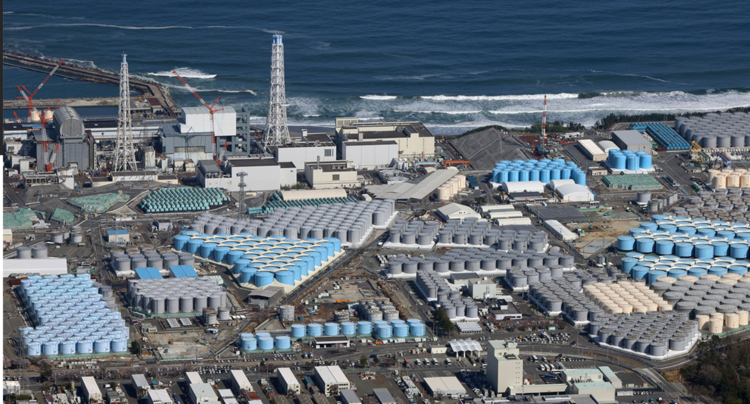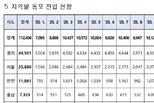
Newsnomics AJAY ANGELINA reporter |
South Korean inquiry found Japan’s plan to discharge treated wastewater from the tsunami-wrecked Fukushi a nuclear power plant to be “consistent with international safety standards,” the government announced on Friday.
A joint examination by the Nuclear Safety and Security Commission and the Ministry of Oceans found no significant fluctuations in the concentration of radioactive materials in the Korean sea waters after the 2011 nuclear disaster in Fukushima. No new types of radionuclides were detected, either.
The government findings were announced three days after IAEA (the International Atomic Energy Agency), the United Nations nuclear watchdog issued its final report on the Japanese plan after nearly two years of assessment. The agency said in the report, “it found the water discharge plan to be in line with safety standards, and that the impact on neighboring countries would be “negligible.”
Bang Moon-kyu, the government policy coordination minister said, “the plan proposed by the Japanese government met international standards, including those of the International Atomic Energy Agency.
“If the plan is kept as outlined, no violation of safety standards is anticipated and a trace amount of the discharged water will get to waters about 100 kilometers southeast of Jeju Island.”
“As Fukushima plant lies on the eastern coast of Japan would be four to five years until the discharged water travels around the Pacific and gets to Korean waters, according to a simulation run by a government research institution.”
Bang said, the concentration of tritium and other radioactive materials in the treated water was found to be consistent with international standards.
“However, the government will continue its monitoring and other safety review efforts during and after the water discharge” Bang added.
South Korea’s assessment was partially based on observations by a governmental scientific team allowed to visit the Fukushima plant in May to investigate the discharge plans with the agreement of Japanese Prime Minister Fumio Kishida during a summit with Yoon in Seoul on May 7, shows Japan’s desire to improve ties between the two nations.
South Korean president Yoon Seok Yeol said, “his team is focused on verifying the capacities of the plant’s advanced liquid processing system, or ALPS, which is designed to reduce dozens of types of radioactive isotopes in the contaminated water to safe levels.”
Separately from the IAEA’s analysis, Korea has been carrying out its own safety review led by the Korea Institute of Nuclear Safety since August 2021.
On July 8, Park Jin, South Korean Minister of Foreign Affairs held a meeting with Rafael Grossi, Secretary-General of IAEA, at the foreign minister office in Jongno-gu and requested cooperation from the IAEA for safety verification and public reassurance regarding the discharge of contaminated water from the Fukushima nuclear power plant in Japan.
Minister Park explained, “the government puts public health and safety first, the stability of the marine discharge of contaminated water from the Fukushima nuclear power plant must be verified from an objective and scientific point of view, and must be handled in a manner that meets international law and standards.”
Rafael Grossi, after meeting with minister Park said on his Twitter account, “It is much more important to start now than to what we have done so far,” and “This is to constantly monitor the implementation of (discharge plan).”
“The IAEA will remain at the Fukushima nuclear power plant to ensure safety at all stages,” he added.
On July 9, Secretary General Grossi met with the Democratic Party and said, "Last week, we opened an IAEA
resident office in Fukushima.” It will be such a place where our international experts can conduct reviews and
overall monitoring while being directly resident."
“Everyone has trust in the scientific work of the IAEA,” Grossi said. “We are neutral, we don’t take sides and we look at the assessment and we make a decision.”










